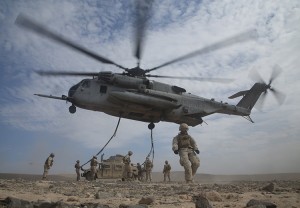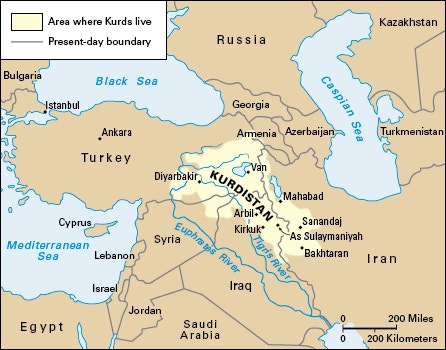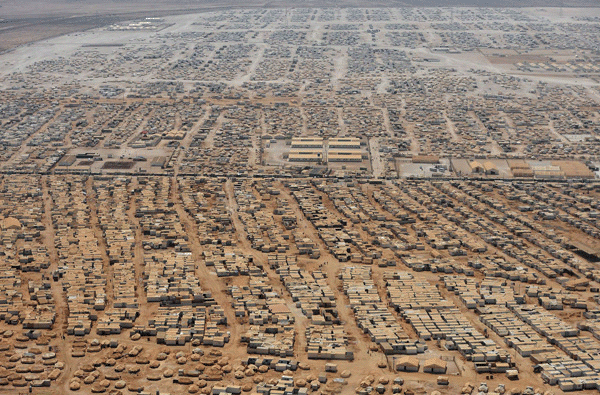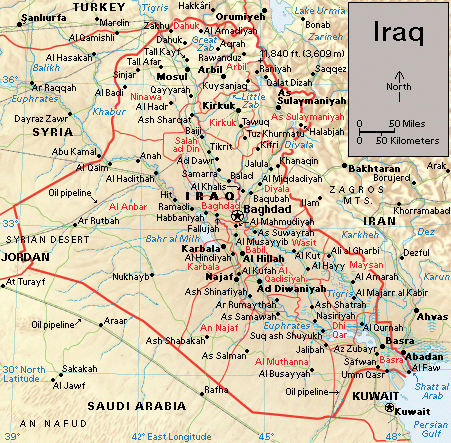The Fall of Raqqa
Thursday, October 19th, 2017October 19, 2017
As Islamic State terrorist forces lost ground in Iraq in 2017, the terror group was also losing ground in neighboring Syria, a country torn apart by civil war since 2011. At times, the Islamic State has controlled large parts of Syria, but its grip has recently shrunk to areas along the Euphrates River in the nation’s sparsely populated east. In 2014, the terror group took control of the northern Syrian city of Raqqa (also spelled Ar Raqqah), proclaiming it a regional capital within its so-called caliphate. The group’s main capital was Mosul, Iraq, which fell in July. Other names for the Islamic State have included the Islamic State in Iraq and Syria (ISIS) and the Islamic State in Iraq and the Levant (ISIL).
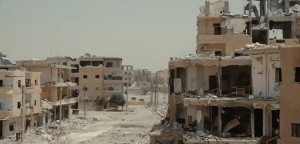
Raqqa, Syria, lies in ruins on Aug. 1, 2017. Fighting to oust Islamic State militants destroyed much of the city in 2017. Credit: Mahmoud Bali, Voice of America
The Islamic State staged euphoric parades—as well as numerous atrocities—in Raqqa, a city that once numbered 300,000 people. Most of Raqqa’s residents fled, but those who could not were forced to watch as Islamic State executioners murdered dozens of people daily. Mass executions took place regularly at the city’s main Clock Tower Square, grisly killings of people who stepped out of line with the terror group’s extreme interpretation of Islam.
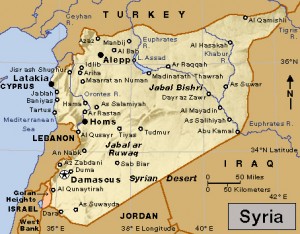
Click to view larger image
Raqqa (here spelled Ar Raqqah) lies on the Euphrates River in northern Syria. Al Mayadin is down river in eastern Syria. Both cities were liberated from Islamic State control in October 2017. Credit: WORLD BOOK map
In 2017, however, the suffering people of Raqqa witnessed a turnaround. The Syrian Democratic Forces (SDF), a Kurdish and Arab militia group,
chased Islamic State fighters away from areas surrounding Raqqa, leaving the city an isolated Islamic State stronghold. On June 6, SDF troops—supplied and supported by the United States-led coalition also fighting the Islamic State—entered Raqqa. Heavy fighting erupted as Islamic State militants battled invading SDF troops. Throughout June, July, and August, the SDF advanced street-by-street against stiff Islamic State resistance.
By September 1, Islamic State control was reduced to several neighborhoods in the city’s north and in the central area around the killing ground of Clock Tower Square. By early October, the battered ruins of Raqqa were firmly in SDF hands, and only scattered pockets of the most fanatic Islamic State fighters remained (thousands of fighters had fled or surrendered). At last, on October 17, the SDF declared Raqqa secured: the last Islamic State fighters in the city had fled or been killed or captured.
Like the fall of Mosul in July, the fall of Raqqa was a significant moment in the fight against the Islamic State, but the fight continues. Also in October, Syrian government forces—who are at war with rebels as well as the Islamic State (but not the SDF)—took control of the eastern town of al Mayadin in Deir al-Zor province, the Islamic State’s last Syrian stronghold.

